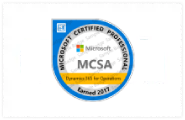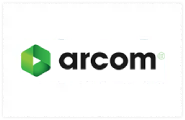Even though the majority of ERP systems have comparable features, they all cater to a particular clientele. As a company matures, its process complexity changes. Different planning and control requirements apply to each phase. A startup is unique. ERP systems are suitable for startups.
The business hasn’t yet standardized process maps or focused optimization on bottlenecks. Projects for integration or implementation are out of reach for these businesses. These activities are useless because of the low transaction volume. Spreadsheets are used by couples to manage forecasting, scheduling, and planning.
With assistance from software developers or consulting companies, ERP systems can be used independently during this phase. ERP systems that are oversimplified restrict the options for organizations with more complex needs. The majority of constraints are in 1:N scenarios for breaking or consolidating processes and object hierarchies.
The Best ERP systems for startups 2024 are listed in this article.
This article is not meant to endorse these ERPs for startups; instead, we want you to consider your needs and pick a product from this list or your sector of the market.
Sage Intacct
With a focus on multi-entity needs, Intacct targets service-centric industries. It lacks the operational functionality needed by product companies like manufacturing, distribution, or retail, but it has strong financial capabilities that might be appropriate for mid-size professional service firms.
Compared to QuickBooks Enterprise, Microsoft GP, Zoho, and Odoo, the financial capabilities are more advanced. You might require add-ons, integration, or custom development depending on your business.
The product is more complex than QuickBooks or Odoo because it is intended for larger organizations, and implementing it might need consulting assistance. For service startups like non-profits, building firms, marketing consultancies, and financial services, Sage Intacct is fantastic. Compared to QuickBooks or other accounting software, it is more potent. On our list of the top 10 new ERP systems for 2024, Sage Intacct comes in at number 10.
SYSPRO
like Microsoft GP, SAP Business One, Infor Visual, and ECi Macola. Deeper operational functionality is provided for small manufacturers and distributors of discrete and processed goods.
Both locally and globally, SAP Business One. Similar financial capabilities include activity-based accounting, deep support for complex UoMs, and object hierarchies to support a variety of business models and processes. The product requires consulting due to its depth. Self-serve may be challenging for new businesses.
Manufacturing and distribution may be similar to Acumatica or NetSuite for companies with one or two US locations. However, the answer isn’t cloud-native. Operations and financial depth are weaknesses of Odoo and Zoho. It is less appealing to startups with a small staff because of its complexity and implementation costs. They might want a straightforward DIY fix. On our list of the top 10 ERP systems for startups in 2024, SYSPRO is ranked #9.
NetSuite
A multi-tenant, multi-entity solution for distribution, B2C, and commerce businesses is called NetSuite. It has a reasonable $30K implementation fee for businesses just starting with ERP. NetSuite advises its clients, assuming they will carry out the majority of the labor-intensive tasks.
Although the cost of implementation may be appealing to high-end startups, the product on this list is the most complex. Consultancy support will be needed for implementation. Like Acumatica and Sage Intacct, NetSuite’s object and process model is richer than those of Odoo or Zoho. For businesses focused on their products, it has greater operational capabilities than Sage Intacct and a wider geographic reach than Acumatica.
NetSuite’s complexity makes it less appealing to startups. businesses seeking a do-it-yourself answer. In 2024, NetSuite will be ranked eighth among the top 10 ERP systems for startups.
Acumatica
For US and UK companies, Acumatica is a multi-tenant, multi-branch solution. Startups with international operations in several nations that need to comply with tax and regulatory requirements have few options. Organizations in the fields of distribution, building, manufacturing, and field services are targeted.
Acumatica sells through resellers, in contrast to NetSuite. Acumatica, like NetSuite, provides inexpensive professional services for implementation. The model is rigid and requires heavy lifting from DIY customers.
Acumatica, like NetSuite, might be attractive to growing startups. They might not have the money for costly consultants or integration. It connects to marketplaces, POS systems, PLM systems, Shopify, and BigCommerce.
Integrations may be advantageous for late-stage startups whose transactional and warehouse activities have increased, but the products’ designs are complex and call for consulting. Businesses must also allocate funds for pricey, error-prone integrations.
Despite being similar to NetSuite, Acumatica may be simpler for startups to use because of its scale and layout. On our list of the top 10 startup ERP systems for 2024, Acumatica comes in at number seven.
ERPNext
Tech-savvy startups will love ERPNext. It shares the open-source developer community and distribution strategy of Odoo. Odoo is more widely used. The company is a great fit for startups in industry 4.0 and eCommerce because its founders have coding backgrounds.
Because the product is new to the market, its design might not be as elaborate as Odoo’s. The solution’s DIY mode has a QuickBooks-like interface. Like Odoo, it supports startup transactions. It wouldn’t have the business objects and process models that NetSuite or Acumatica provide to support businesses after they leave the startup stage.
ERPNext lacks last-mile capabilities similar to those found in ECi DeaCom, ProShop, GlobalShop, and JobBoss2. On our list of the top 10 new ERP systems for 2024, ERPNext comes in at number six.
ECI Macola
The abilities of ECi Macola resemble those of SYSPRO. To ECi, Exact sold it. Over 1,000 customers are maintained by ECi. Compared to Odoo or ERPNext, it comes with deep functionality prepackaged for small manufacturers and distributors. It lacks the strength of NetSuite or Acumatica. To expand the business, ECi’s private equity backer has been active in acquisitions.
They sell a variety of goods. The product strategy of ECi does not make it clear how committed it is to Macola. Macola has more comprehensive distribution capabilities than ECi M1 or JobBOSS2. Macola will probably continue to be developed by ECi.
The solution still needs consulting even though it is less complicated than NetSuite or Acumatica. Furthermore, DIY implementation will be more difficult than with Odoo, ERPNext, or Zoho. On our list of the top 10 startup ERP systems for 2024, ECi Macola comes in at number five.
ECI JobBoss2
E2 Shoptech and JobBOSS are combined in JobBoss2, or JobBoss2. JobBOSS made it possible for startups in custom manufacturing to set up, schedule, and control production facilities without the need for costly consultants. Like SYSPRO or Macola, E2 Shotech was a more durable product designed for machine shops and smaller jobs.
Like GlobalShop or ProShop, E2 Shoptech had features. Companies require consulting assistance to implement the product. Most of these packages lack accounting, inventory, and procurement functionality because they are intended for shop floor operators. The development flavors of JobBOSS will probably remain in ECi JobBOSS2 once it is made available.
Due to the development framework of JobBOSS, DIY configuration is possible. Compared to Odoo or ERPNext, it will have more advanced machine and job shop functionality. On our list of the top 10 startup ERP systems for 2024, ECi JobBOSS2 comes in at number four.
ECI DeaCom
ECi DeaCom is a solution that was created with food and beverage distributors, pharmaceutical and cannabis producers, and DTC brands in mind. DeaCom has many features for smaller distributors and manufacturers, but it is more adaptable than QuickBooks or ProShop due to its transactional integrity and SQL-based data store.
For smaller, process-focused businesses that require development and integration with Odoo or ERPNext, ECi DeaCom is the market leader. For these verticals, NetSuite or Acumatica will need extensions. Requirements for serial numbers, route accounting, recall management, and traceability are crucial.
Although ECi DeaCom was founded in the cloud, it only has a little over 200 clients. DIY implementation of ECi DeaCom is possible with little consulting or assistance. On our list of the top 10 startup ERP systems for 2024, ECi DeaCom comes in at number three.
Zoho
Odoo and Zoho both offer CRM and HCM solutions. comparable to Workday or Salesforce, but with smaller customer bases. They are one of the least expensive HCM and CRM providers, with a per-seat license as low as $1 per month, thanks to their cost model and India-based development.
Professional services, distribution, healthcare, and eCommerce startups are good fits for Zoho. Similar to Odoo, Zoho appeals to businesses with internal technical resources or platform expansion goals.
Companies will have trouble with Zoho’s consolidated invoicing and intricate allocations once they move past the startup stage. Companies can implement the fix on their own without spending any money or time on consultants. On our list of the top 10 startup ERP systems for 2024, Zoho comes in at number two.
Odoo
Unlike QuickBooks, Xero, or FreshBooks, Odoo is a straightforward product with more robust operational capabilities. Its business model is cost-effective and integrates with both Zoho and ERPNext.
Odoo lacks last-mile functionality for specialized industries like ECi DeaCom or JobBOSS out of the box. For eCommerce businesses and industry 4.0 integrators with internal resources to expand it, it’s a robust solution.
The object and process model in Odoo is comparable to ERPNext or Zoho. This makes the design of Odoo startup-friendly. It can be implemented with less expensive consulting. These factors make Odoo the best ERP system for startups in 2024.
Conclusion:
Startup solutions offer the bare necessities for a startup to establish and sustain itself. Pre-built integrations are a part of these solutions. Compared to add-on-required cloud accounting solutions, they provide greater operational capabilities.
Startups using Xero, FreshBooks, or QuickBooks should think about these alternatives. But be careful not to over- or accumulate. When you can afford consultants to design your processes for the next stage of growth, the next-stage solutions can offer superior ROI and efficiency once you outgrow these options.







